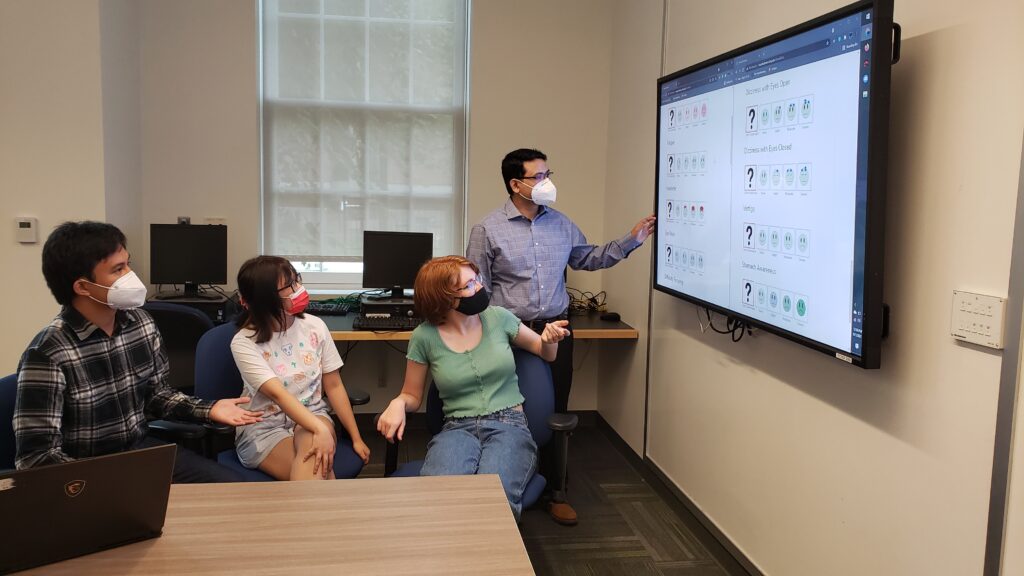
Dr. Sharif Ferdous has been awarded a $174,835 grant from the National Science Foundation for his research project studying virtual reality sickness.
In recent years, Virtual Reality (VR) technologies have become more affordable and accessible to a diverse population, including children. Unfortunately, one of the biggest challenges for VR technologies is virtual reality sickness, also known as cybersickness. The most common cybersickness symptoms include eyestrain, headache, sweating, fullness of head, disorientation, vertigo, nausea, etc. While much research focuses on cybersickness for adults, very little research has been conducted for children. In this project, we will focus on understanding cybersickness in children.
The Simulator Sickness Questionnaire (SSQ) is the most popular method of measuring cybersickness, even though some of the questions can be harder for children to comprehend. At the beginning of the project, TCNJ undergraduate student researchers will develop a web application that augments the existing SSQ with animation that makes it easier for children. In addition, student researchers will be trained on recording and analyzing electroencephalography (EEG). In the next step, student researchers will develop a VR roller coaster simulation to study cybersickness using subjective (SSQ) and objective (EEG and heart rate variability) measures in children and compare them with adults. Finally, student researchers will investigate the conditions of different virtual environment (VE) conditions (e.g., speed, angular speed, rotation, acceleration, change in lighting, change in contrast etc.) and their effect on cybersickness in children. Ultimately, the student researchers will formulate the very first guidelines for developing VR content for children.
More details about Dr. Ferdous’s courses and research can be found on his website.
Congratulations again to Dr. Ferdous!
